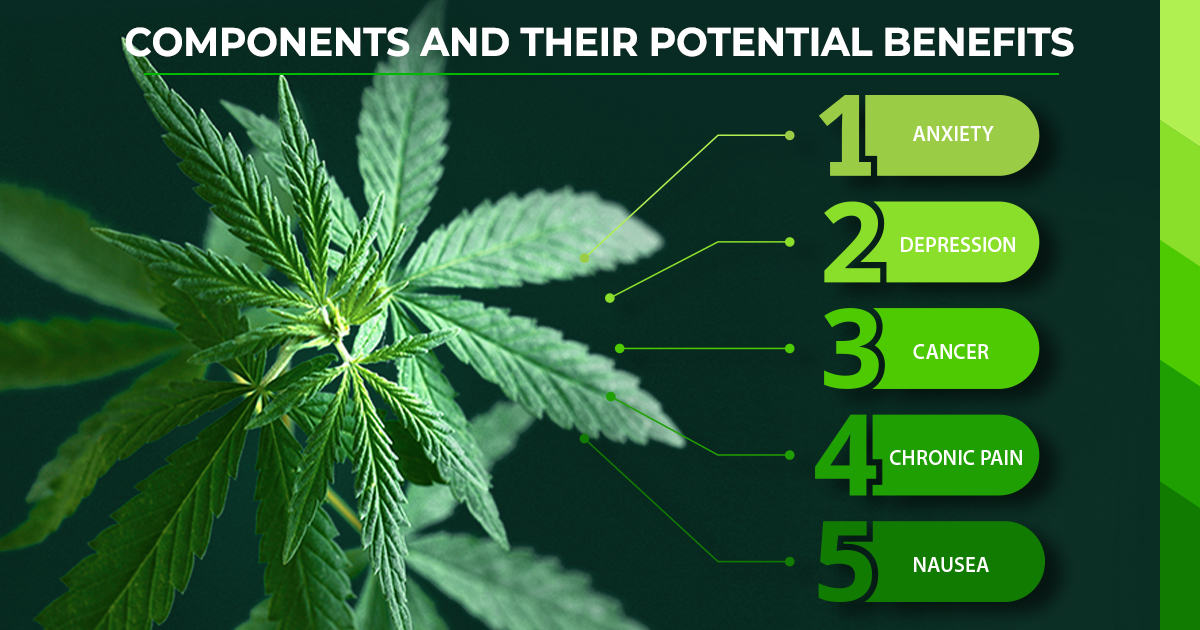Exploring Medical Benefits of Cannabis for a Quality of Life
In today’s world, the discourse surrounding medical cannabis is evolving rapidly. Medical Cannabis serves as a means of becoming increasingly popular as a changing alternative. Its medical promise for a variety of ailments has sparked national interest in issues concerning law, ethics, and society. Growing state approvals, TGA concerns, and shifting acceptability all indicate a changing environment.
Comprehending the basics

Before we can find out what are the medical benefits of cannabis, we must first comprehend its basics The efficacy of medical marijuana is based on a complex interaction of components and medicinal cannabinoids. The major cannabinoids, THC and CBD, imitate the actions of endocannabinoids by interacting with CB1 and CB2 receptors to regulate physiological processes. This interaction leads to a variety of therapeutic outcomes, including pain relief, inflammation decrease, and mood stabilisation. The endocannabinoid system’s involvement in maintaining physiological equilibrium, along with the entourage effect, in which numerous plant components increase each other’s benefits, adds to the intricacy of medical marijuana science.
Understanding Benefits of Medical Cannabis Through Its Components

Cannabidiol (CBD)
CBD is a non-psychoactive compound found in cannabis with various therapeutic properties.
The non-psychoactive substance CBD interacts with the body’s endocannabinoid system to control several bodily functions. One of the health benefits of medical cannabis is CBD doesn’t induce a “high” sensation, making it suitable for medicinal use. Unlike THC, which attaches directly to cannabinoid receptors in the brain, it has an indirect effect on receptor activation and neurotransmitter release.
Therapeutic Applications:
Due to its potential therapeutic benefits for a variety of medical ailments, CBD has attracted a lot of attention. Studies on CBD’s effects are still being conducted, but they have shown that it is effective at reducing symptoms related to a wide range of illnesses. The medicinal uses of CBD to treat various conditions comes under the health benefits of medical cannabis:
- Chronic Pain Management: CBD has shown analgesic qualities, which makes it useful in easing pain brought on by ailments like neuropathy, arthritis, and inflammatory illnesses. CBD provides a safer, more natural option to prescription painkillers by lowering inflammation and altering how pain is felt.
- Epilepsy: Clinical studies have demonstrated that CBD can dramatically lower seizure frequency and intensity in epileptic patients, which has led to the approval of CBD-based treatments for specific types of the illness.
- Anxiety and Depression: CBD can assist in mood regulation, stress reduction, and enhancement of general emotional well-being through its interaction with serotonin receptors in the brain.
- Neuroprotective Effects: Due to its neuroprotective qualities, CBD may be used to treat neurodegenerative illnesses including Parkinson’s and Alzheimer’s. CBD may help avoid the worsening of serious conditions and maintain cognitive function by lowering inflammation, oxidative stress, and excitotoxicity.
Tetrahydrocannabinol (THC)
THC is the psychoactive component of cannabis responsible for its euphoric effects. THC interacts with brain cannabinoid receptors, specifically CB1 receptors, causing psychoactive effects. It alters sensory perception, mood, and consciousness, leading to altered perception, mood enhancement, and changes in consciousness.
While these effects can be pleasurable, they can also cause adverse reactions like anxiety and impaired cognitive function. THC also has therapeutic potential, such as pain management and appetite stimulation. However, health benefits of medical cannabis are evident, it’s crucial to use THC-containing products responsibly and under healthcare guidance to minimize risks and maximize benefits.
Therapeutic Applications:
Despite its psychoactive properties, the therapeutic advantages of THC come under the numerous medical benefits of cannabis, some are:
- Pain Relief: THC, a potent drug, can alleviate pain by binding to the body’s endocannabinoid system, reducing pain intensity and perception. This makes THC-containing products like medical cannabis effective for managing chronic pain conditions.
- Appetite Stimulation: THC, also known as “munchies,” stimulates appetite by activating hypothalamic cannabinoid receptors, affecting individuals with appetite loss or cachexia due to medical conditions. THC-containing medications are prescribed to prevent weight loss.
- Nausea and Vomiting Relief: THC’s antiemetic properties can alleviate nausea and vomiting in cancer patients, acting on brainstem and gastrointestinal receptors. It may also provide relief for nausea associated with other medical conditions and side effects.
- Muscle Relaxation: THC’s muscle-relaxant properties can alleviate muscle spasticity and tension in conditions like MS and spinal cord injury, improving mobility, reducing pain, and enhancing quality of life.
Health Benefits of Medical Cannabis: Treating several Medical Conditions
Medical cannabis has demonstrated effectiveness in managing a diverse range of health conditions, offering relief and improving the quality of life for many individuals. Here, we address the health benefits of medical cannabis, delving into the aspects of its therapeutic potential.
Medical marijuana is used to treat a range of conditions like, cancer, glaucoma, chronic pain, nausea, wasting syndrome, muscle spasms, multiple sclerosis, Crohn’s disease, and inflammatory bowel disease. Additionally, it also helps with the conditions associated to mental health like Anxiety, Depression and Post-traumatic stress disorder (PTSD). Also, Medical cannabis has shown promise in managing symptoms of Neurological disorders like, epilepsy, multiple sclerosis (MS), and Parkinson’s disease.
Considerations for Dosage and Administration

A.Different Forms of Medical Cannabis
One of the benefits of medical cannabis is its variety of formulations and delivery methods, catering to the diverse preferences and therapeutic needs of patients. Each form offers unique advantages in terms of onset of action, duration of effects, and ease of administration.
Oils and Tinctures: Cannabis extracts are administered sublingually, allowing for rapid effects and precise dosing control. These liquid formulations are placed under the tongue for absorption, allowing for quick effects on pain, anxiety, and nausea. Patients often prefer these methods for fast relief as they are directly absorbed into the bloodstream through mouth mucous membranes.
Edibles: Edibles are food products infused with cannabis extracts, like oils or concentrates, consumed orally. This method becomes one the benefits of medical cannabis, considering the convenience. Common edibles include gummies, chocolates, baked goods, and beverages. Unlike sublingual administration, edibles have a delayed onset time due to digestion and absorption in the gastrointestinal tract. However, once absorbed, edibles can provide long-lasting symptom relief.
Inhalation: Inhalation is the process of inhaling cannabis vapors or smoke into the lungs, where active compounds are quickly absorbed into the bloodstream. This method, which can be done through smoking dried cannabis flower or vaporizing concentrates, offers the fastest onset of effects, making it ideal for patients seeking immediate relief from acute symptoms. However, smoking cannabis can pose risks to respiratory health, while vaporizing offers a safer alternative.
B.Personalized Dosage Guidelines
Tailoring the dosage is one of the medical benefits of cannabis, it is not usual to tailor medicines as per individual needs ensuring that patients receive the maximum benefit from treatment while avoiding unwanted side effects.
Consultation with Healthcare Professionals: Professionals, such as physicians, pharmacists, or specialized cannabis clinicians, can provide personalized recommendations for patients undergoing medical cannabis therapy. These professionals assess factors like the patient’s medical history, current health status, and treatment goals to determine the most suitable dosage and administration method.
Monitoring Effects: Regular monitoring of patients’ symptoms and treatment responses is crucial for adjusting dosage guidelines and ensuring optimal outcomes. Healthcare professionals can adjust dosage, administration method, or cannabinoid ratios based on feedback. Regular follow-up appointments assess treatment efficacy and safety, allowing for collaboration and optimization of treatment and overall quality of life.
Side Effects and Risks
Medical cannabis, a popular treatment for various conditions, and though there are numerous medical benefits of cannabis, it still causes side effects and there are potential risks, especially in certain individuals.
Common side effects include dry mouth, red eyes, increased heart rate, dizziness, and cognitive impairment. It may also exacerbate symptoms of anxiety, depression, or psychosis in those with a history of mental health disorders.
Medical cannabis has a lower risk of dependency compared to opioids, but long-term or excessive use may lead to addiction. Smoking cannabis poses risks to respiratory health, similar to tobacco smoking, and can impair driving ability.
Patients should discuss these risks with their healthcare provider before starting treatment to ensure safe and effective use of medical cannabis for therapeutic purposes. They can provide personalized guidance, monitor treatment responses, and help mitigate potential risks to ensure safe and effective use.
Embracing the Potential of Medical Cannabis
In conclusion, medical cannabis offers a promising avenue for treating various medical conditions, from chronic pain to neurological disorders and mental health issues. By understanding benefits of medical cannabis and its components, medical applications, dosage guidelines, and potential side effects, individuals can make informed decisions about integrating medical cannabis into their healthcare regimen.
FAQs
Frequently asked questions
What are the health benefits of cannabis CBD?
CBD, a non-psychoactive compound in cannabis, has potential health benefits. It may alleviate anxiety, reduce inflammation, and help manage pain. Studies suggest it could aid in epilepsy treatment and promote better sleep. While research is ongoing, CBD shows promise for various conditions, but its effectiveness varies among individuals. Always consult a healthcare professional for personalized advice.
Are there any health benefits from marijuana?
Marijuana contains cannabinoids, such as THC and CBD, which may offer health benefits. THC can help with pain relief and nausea, while CBD may have anti-inflammatory and anti-anxiety properties. However, potential risks include impaired cognitive function and addiction. Medical marijuana is used to treat certain conditions, but its overall health impact depends on individual factors and responsible use. Consult with a healthcare professional for personalized advice.
What are the proven benefits of cannabis?
Proven benefits of cannabis include pain relief, anti-nausea effects (especially in cancer patients undergoing chemotherapy), and appetite stimulation for conditions like HIV/AIDS. Additionally, certain cannabinoids, such as CBD, show promise in treating epilepsy. However, more research is needed to fully understand its potential benefits and risks across various medical conditions. Always consult with a healthcare professional for personalized advice.
Do you know benefits of Medical cannabis?
Medical cannabis, when used under professional guidance, has demonstrated benefits such as pain management in chronic conditions, relief from nausea and vomiting caused by chemotherapy, improved appetite in HIV/AIDS patients, and potential anti-seizure effects. It also shows promise in managing certain neurological and psychiatric disorders. However, individual responses vary, and consultation with a healthcare provider is crucial for safe and effective use.
Does Cannabis Have Potential Benefits for Mental Health?
Cannabis, particularly compounds like CBD, has shown potential benefits for mental health. Research suggests it may help alleviate symptoms of anxiety, depression, and post-traumatic stress disorder (PTSD). However, the impact can vary, and excessive THC consumption may have adverse effects. While promising, more studies are needed to fully understand the complex relationship between cannabis and mental health. Consultation with a mental health professional is advised.
Can Cannabis Aid in Sleep Disorders?
Cannabis, specifically strains with higher CBD content, may aid in sleep disorders by promoting relaxation and reducing anxiety. However, the effects can vary, and long-term use may impact sleep quality. THC, another cannabis compound, can help induce sleep but may lead to dependence. It’s essential to consult with a healthcare professional to determine the suitability of cannabis for addressing sleep issues.
Step into a world of relief with CannaAid’s dedicated approach to natural pain management.
We’re committed to alleviating suffering through plant-based medicine and providing a haven for those ready to break free from the restrictions of traditional medicine.








